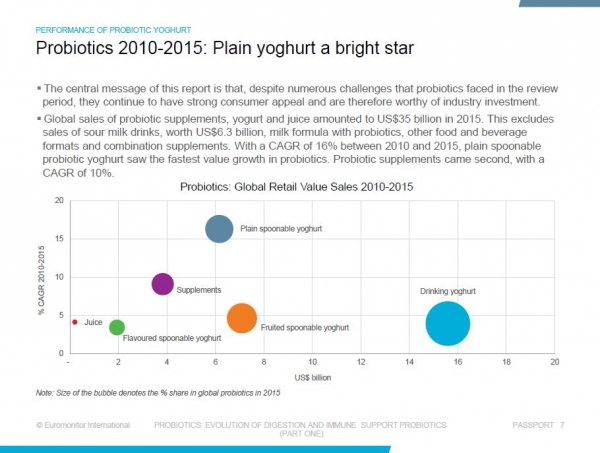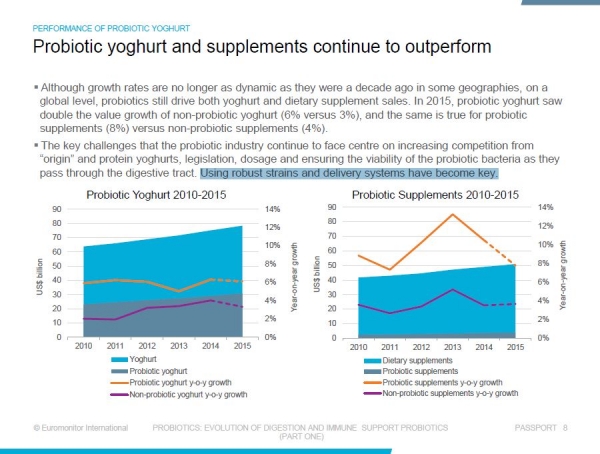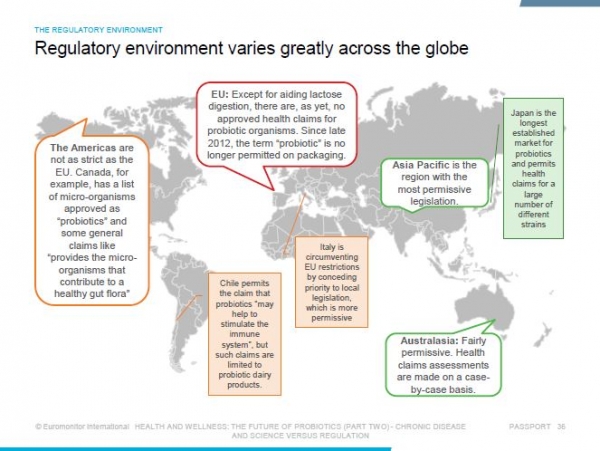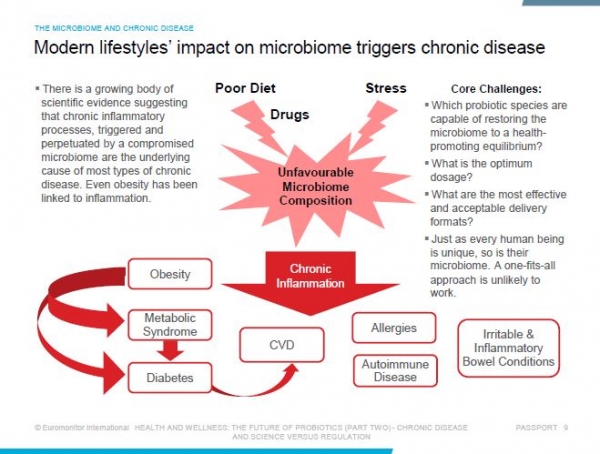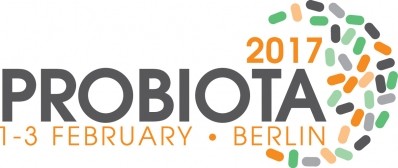Dispatches from Probiota 2016
Must read: Many, many things you need to know about probiotics until 2020
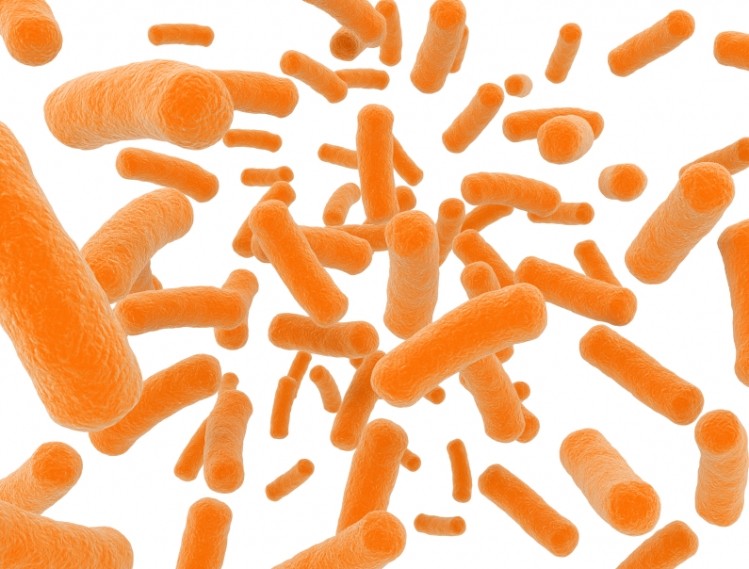
The €32bn figure accounts for probiotic supplements (but not combination supplements), yoghurts and juice. Infant formula and other formats like bars are also excluded.
The market would grow to €43.5bn in 2020, said Euromonitor's global director of health & wellness research at Probiota, information now available in two reports.
“The central message is that, despite numerous challenges that probiotics faced in the review period, they continue to have strong consumer appeal and are therefore worthy of industry investment,” said the research firm.
Yoghurt
It found global growth of 6% in probiotic yoghurt – double the rate of regular yoghurt growth, even if rates had slowed in western Europe and the US. Going forward, the market will grow at 7% annually until 2020 with China adding €9bn in sales in this period (compared to less than €1bn in the US).
“China, in particular, is propelling probiotic yoghurt growth…Sales of Momchilovtsi (Bright Food Group) rose by $600m (€545m) in 2015 alone.”
Japan, Australia, the Middle East and India are also showing strong growth while markets like Brazil, the US, Mexico, South Korea, France, Italy, Spain, Germany and the UK are declining.
French dairy Danone’s Activia spoonable yoghurt Activia retained its status as the biggest-selling probiotic yoghurt in the world, with Japan-based Yakult drinking yoghurts the next biggest.
The two were way out in front of other brands like Chobani, Yili, Danone’s drinking yoghurt Actimel, Mengnui, Wahaha and combined private label offerings.
Euromonitor said probiotic players ignored the rise of ‘origin yoghurts’ at their peril as it was “too big a trend to fight” especially given probiotic marketing restrictions in place in many regions around probiotics.
The report said “introducing origin variants of probiotic yoghurts has become a necessity.”
It affirmed the importance of health claims, noting sales were rising in Switzerland where several claims had recently been approved, compared to most other EU countries where a ban on probiotic claims remains in place.
Supplements
Probiotic supplements were the fastest growing supplement category – rising 8% last year globally and again double the average growth of non-probiotic supplements globally.
Procter & Gamble’s Align brand in the US overtook Italy’s Enterogermina (Sanofi-Aventis) to become the biggest probiotic supplement brand on the planet, although both are outstripped by combined private label sales. Amerifit’s Culturelle was the third biggest brand followed by Novartis’s Linex.
Euromonitor noted “private label remains key to category popularity.”
There was a general shift in developed markets from “yoghurt towards supplements” with dosage transparency, convenience and calorie control key drivers.
Challenges in the segment included competition from ‘origin’ yoghurts like Greek yoghurt, legislative changes, dosage and bioavailability. “Using robust strains and delivery systems have become key.”
Market restrictions included the fact that probiotics are classified as drugs in many markets in regions like Asia and latin America.
Probiotic supplements aimed at children and infants are growing in popularity.
Millennial shift: One size does not fit all
The report said probiotic firms were tailoring products and marketing strategies to Millennials – younger people that account for about 30% of the global population.
“They are less focused on conspicuous consumption, seek value for money and focus on experiences, which means no more ‘one size fits all’.”
Engaging with people via social media channels was increasingly important to connect with Millennials and others.
Points of interest
Digestive health remained the global number one platform by a long way, with immunity trailing in second, a situation boosted by the relative paucity of immune system claims in comparison to gut health claims.
Juice is a nascent category dominated by pioneer, Danone-owned Proviva in Scandinavia, but seeing many smaller players entering the space including Goodbelly in the US and Feelgood in the Philippines.
Other probiotic platforms included hot beverages like coffee and tea and chocolate.
Euromonitor said the rise in chronic disease rates and ageing populations across the world presented great opportunities for probiotic firms. Inflmmation, obesity, cardiovascular disease and diabetes were highlighted.
These health issues were also shifting from the developed to the developing world.
Find out more about the reports here.
